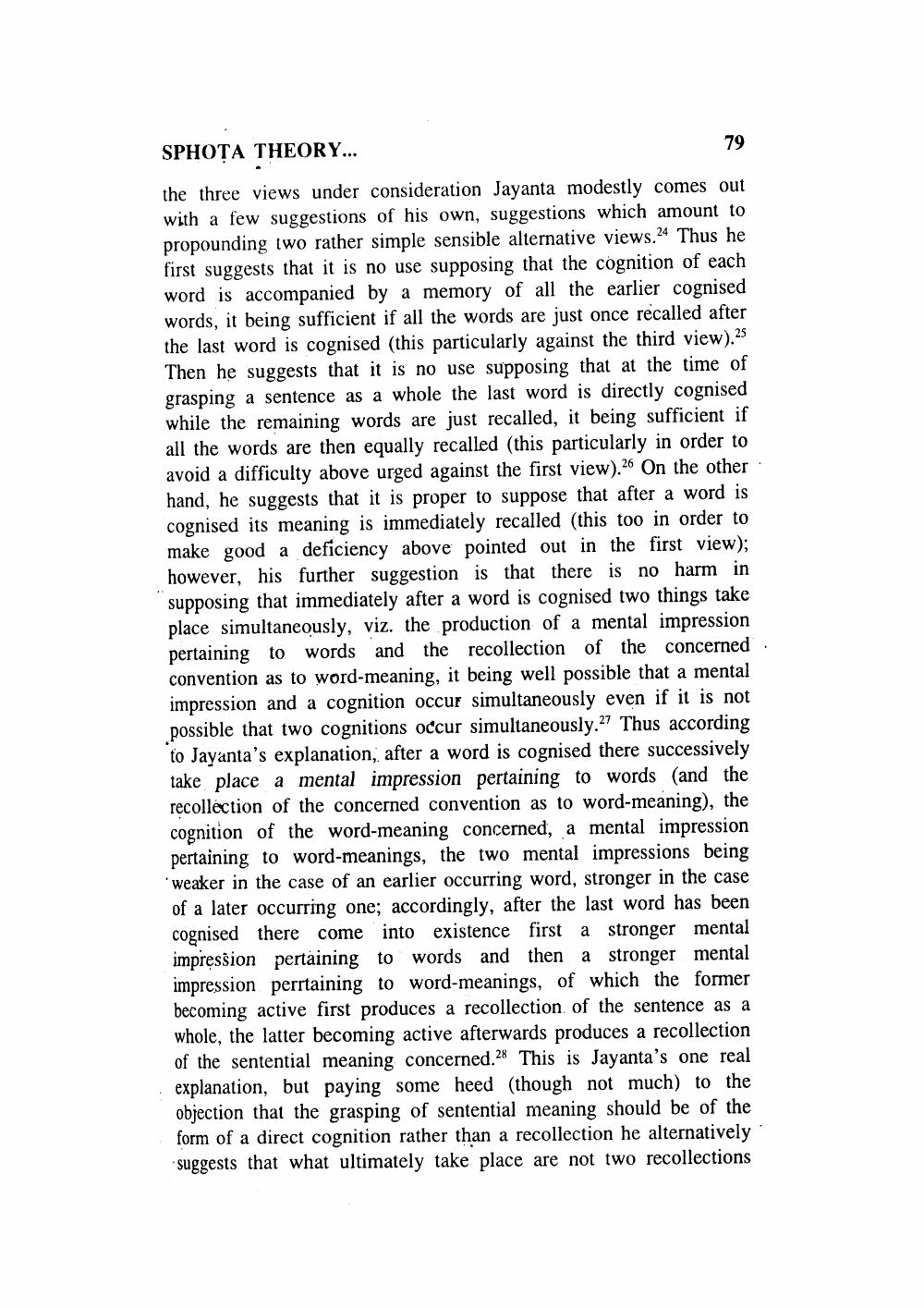________________
SPHOTA THEORY...
79
the three views under consideration Jayanta modestly comes out with a few suggestions of his own, suggestions which amount to propounding two rather simple sensible alternative views.24 Thus he first suggests that it is no use supposing that the cognition of each word is accompanied by a memory of all the earlier cognised words, it being sufficient if all the words are just once recalled after the last word is cognised (this particularly against the third view).25 Then he suggests that it is no use supposing that at the time of grasping a sentence as a whole the last word is directly cognised while the remaining words are just recalled, it being sufficient if all the words are then equally recalled (this particularly in order to avoid a difficulty above urged against the first view).26 On the other hand, he suggests that it is proper to suppose that after a word is cognised its meaning is immediately recalled (this too in order to make good a deficiency above pointed out in the first view); however, his further suggestion is that there is no harm in supposing that immediately after a word is cognised two things take place simultaneously, viz. the production of a mental impression pertaining to words and the recollection of the concerned convention as to word-meaning, it being well possible that a mental impression and a cognition occur simultaneously even if it is not possible that two cognitions occur simultaneously.27 Thus according to Jayanta's explanation, after a word is cognised there successively take place a mental impression pertaining to words and the recollection of the concerned convention as to word-meaning), the cognition of the word-meaning concerned, a mental impression pertaining to word-meanings, the two mental impressions being 'weaker in the case of an earlier occurring word, stronger in the case of a later occurring one; accordingly, after the last word has been cognised there come into existence first a stronger mental impression pertaining to words and then a stronger mental impression perrtaining to word-meanings, of which the former becoming active first produces a recollection of the sentence as a whole, the latter becoming active afterwards produces a recollection of the sentential meaning concerned.28 This is Jayanta's one real explanation, but paying some heed (though not much) to the objection that the grasping of sentential meaning should be of the form of a direct cognition rather than a recollection he alternatively suggests that what ultimately take place are not two recollections




